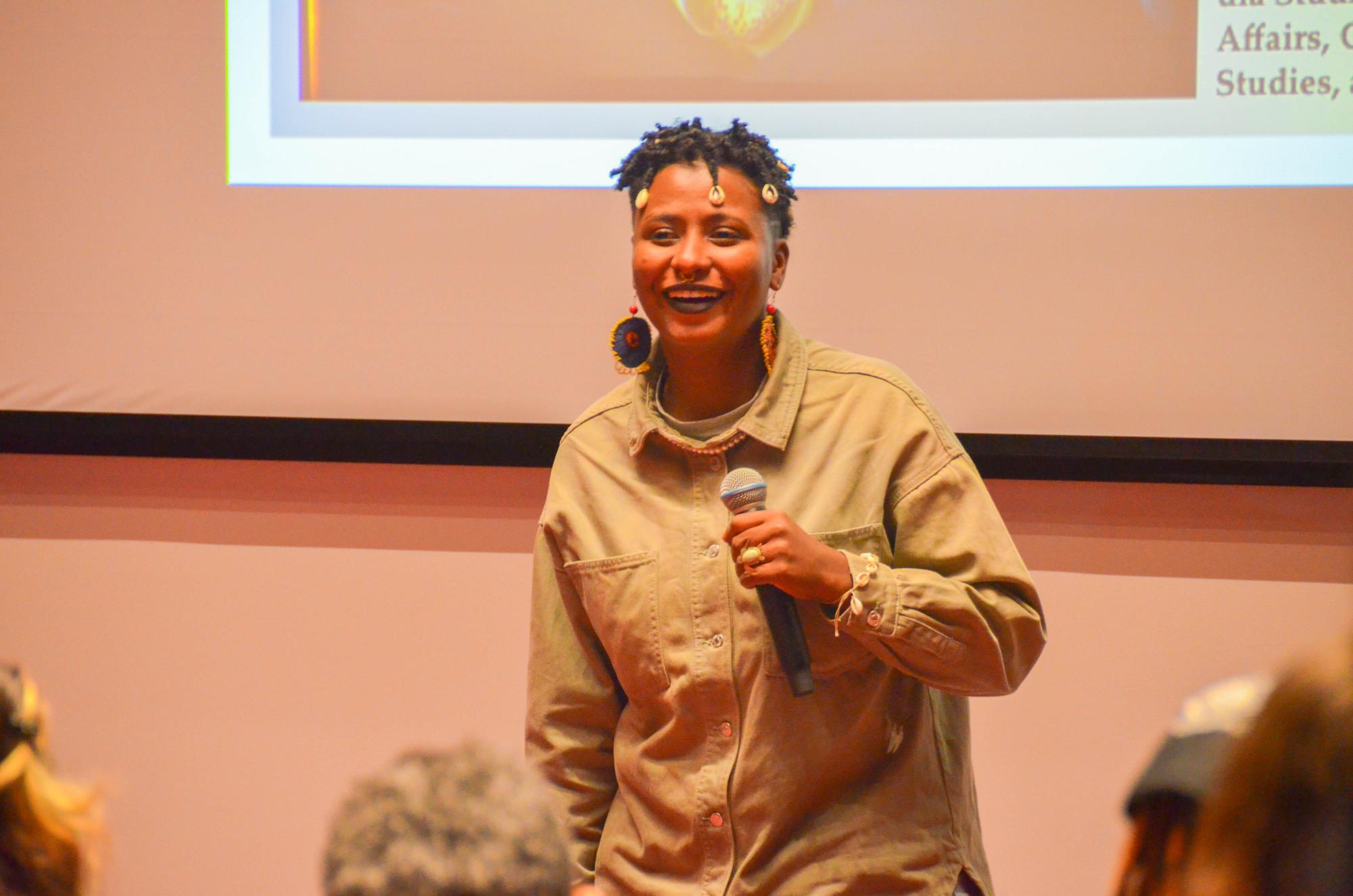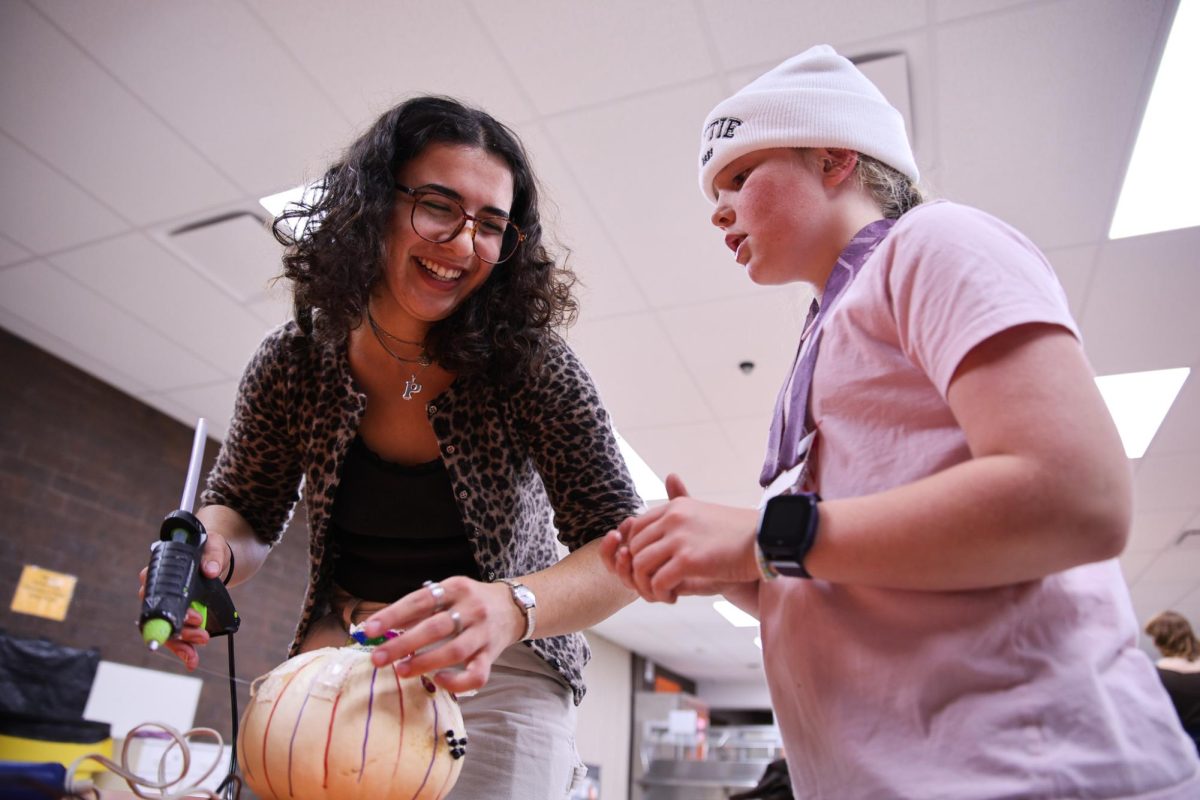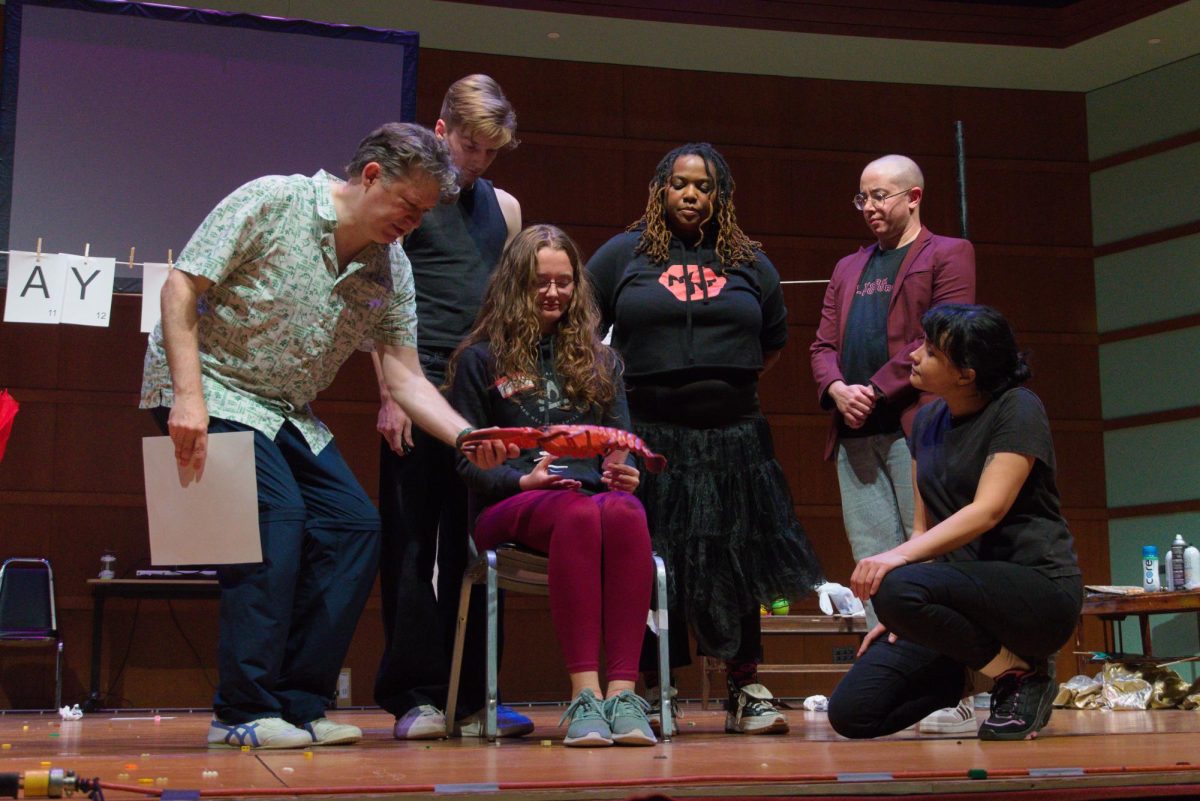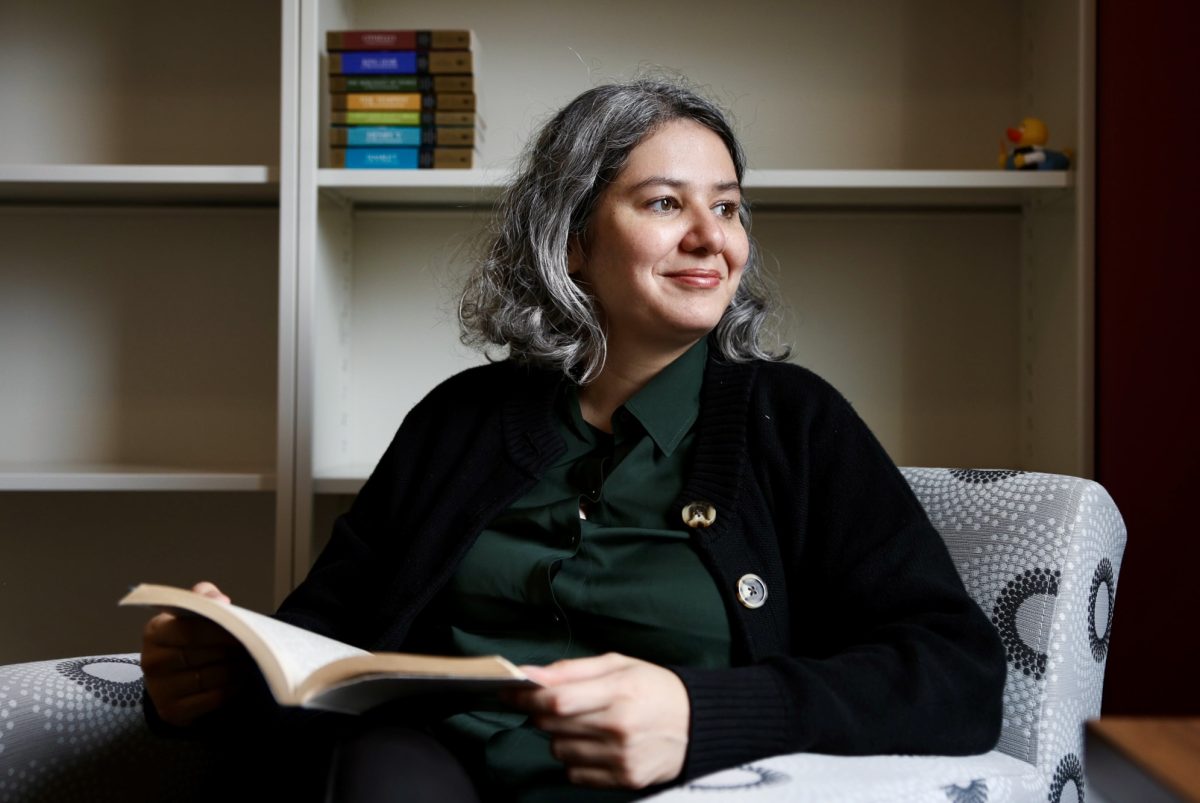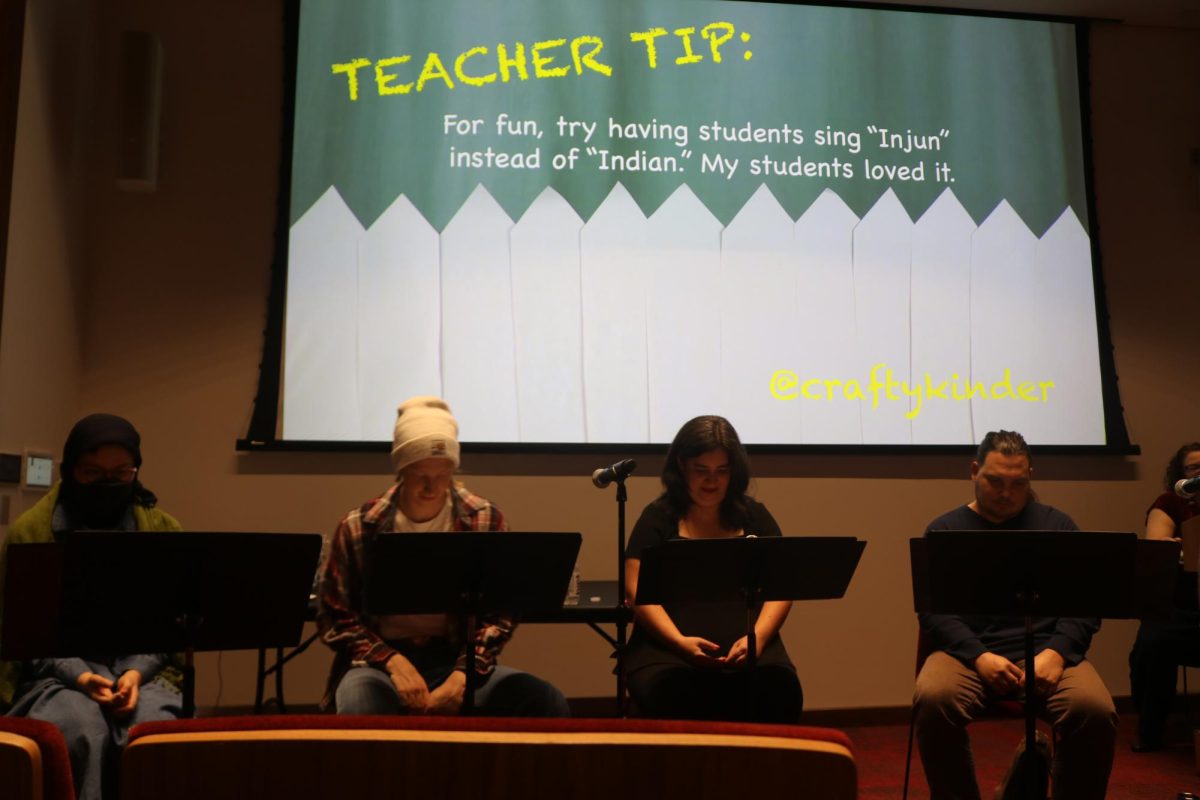Ana María Jessie Serna said that they never dreamed of being a filmmaker — that their ancestors had put them on this path. From the Colombian island of San Andrés, Serna’s path led them over 2,000 miles to Grinnell College, where Fredo Rivera, professor of art history, curated a film screening of two documentaries by Serna this past Monday, Jan. 5.
Rivera said they wanted to share Serna’s films on campus because they thought the works have “critical appeal” for students.
“I was particularly excited that they are an early career filmmaker who is doing films about communities that they relate to,” Rivera said. “I think that their work definitely embodies their experiences that are specific to their identity, but more broadly tell the stories about the beauty of various communities.”
The departments of film and media studies, gender, women’s and sexuality studies and Latin American studies along with the office of intercultural affairs sponsored Serna’s film screening. The films “Fishing Her — Mujeres de Sal” and “Because I Know How Beautiful My Being Is” were shown in the Humanities and Social Studies Center (HSSC) Auditorium with attendance from College students, faculty and staff.
Serna created “Fishing Her — Mujeres de Sal,” their first film, as part of an undergraduate project in 2018 to document the experiences of fisherwomen on the Caribbean Sea.
“The fish have a purpose, and we have okne too,” a woman in the film said. In the documentary, the fisherwomen view the sea as their life and fishing as the roots from which they sustain themselves and their traditions.
Viewers at the screening commented on Serna’s dynamic use of language in the film, as the fisherwomen spoke varieties of Creole and Spanish. Serna explained that the Creole language allows the women to maintain an aspect of identity in their community.
In 2023, Serna released their film “Because I Know How Beautiful My Being Is” toward their thesis for their master’s degree at the University of Manchester.
“I did this film for cinema,” they said.
The film takes the perspective of four Black, queer individuals residing in Manchester, England. Serna said they used this documentary to “show Black people the way I see us.” According to them, this includes emphasizing the notion that being Black and queer is beautiful, and that Black people’s experiences, along with their identities, shape their lives positively.
Serna said that the target audience of the documentary was Black people, who they described as being “scared of white people” due to the trauma of white decisions on how they should live. Serna emphasized that they do not view all white people as problematic, and that they still believe that embodying the stories of Black, queer individuals through their film is a “social necessity.”
Kenn Anderson `24 said they appreciated the perspectives presented in the film. “I took away a diaspora of experiences from my people. I loved seeing how they captured many different experiences from many different places — it was all a joyful experience,” they said.
Kalea Martin `25 said, “There was a lot of creativity with the work. I think there was also a lot of detail in regard to showing each person’s individual story.” According to her, the films allowed both others and herself to escape their own personal worlds.
“It’s really easy to be focused on yourself, not on the issues that are important to everyone,” she said.
Serna said that their passion for creating documentaries was sparked when their work with the Colombian government landed them on an Indigenous reservation. “That’s why I started to use audio-visual tools to speak with people,” they said after encountering individuals who could not read or write during their fieldwork.
Regarding Serna’s multimedia approach, Anderson said that it is “important not only for the way we learn, but for the way we interpret who other people are, how they deal with the stuff they deal with.”
The filmmaker said they remain driven to produce films despite lacking funds and adequate technology. “There’s no excuse to not do it because I don’t have the money,” Serna said. According to them, the film industry is somewhat of a technology competition, with those who have access to more advanced technology, which requires more funds, being recognized first.
“Nothing you decide to do is easy. You just need to believe in your path,” they said. Serna said they prioritize putting their heart and soul into their films so that their identity emerges through the screen. “If you want to know me, just watch my film and you’re going to see my soul.”

